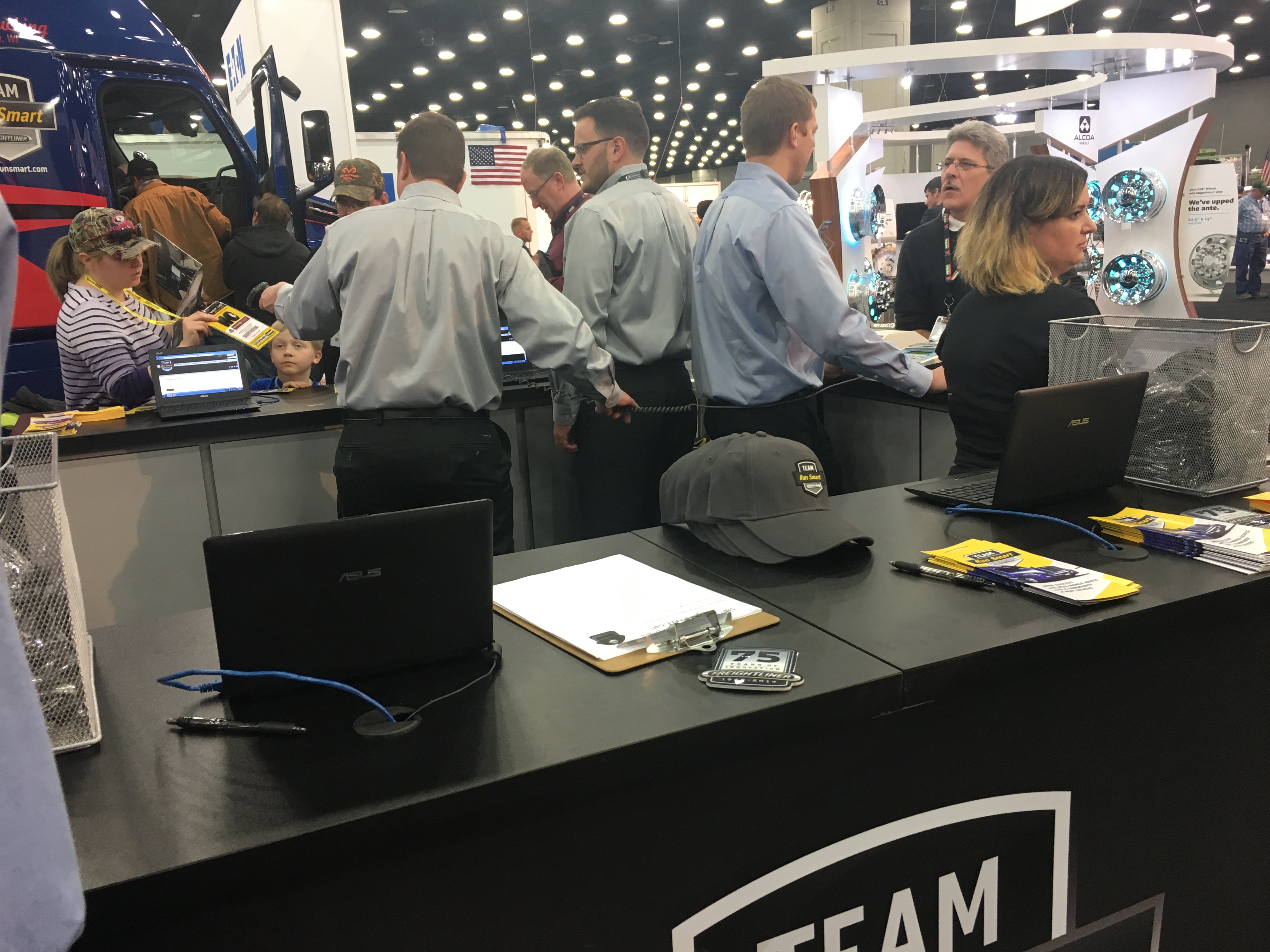.JPG.aspx?lang=en-US&width=549&height=412)
Networking includes learning from everyone including safety directors and can they give us an ear full. We all make mistakes in judgement but some of what I hear is more of drivers ignoring a problem and hoping they will not get caught or cause an accident before the problem can be fixed at their leisure.
The funniest message we received while at our former carrier was “check the box before leaving the dock and make sure the fork lift is not in there”. That was definitely a “WTH” moment and how in the world did that happen. A whole lot of things went wrong to let a truck pull away from a dock with the fork lift still inside. Safety messages are broadcast for a reason and they are shared as something crazy just happened. Another message was to check speed when getting the bypass going through a scale. A driver started picking up speed to soon and got a ticket for thirty mph over the posted speed limit. That truck was immediately terminated and looking for a new company with a bad ticket on their record. Another was a driver wearing a black top in the evening, wearing their seatbelt but the officer driving by could not see the seat belt and wrote a ticket for no seat belt use. Even though when the officer walked up to the truck the seat belt was on. All of this has stuck in our minds, double check that the box is clear before pulling away from dock, check speed when going through a scale, order orange seat belts to be used in the truck as we never wear orange, knowledge is power and by talking with other professionals we add to our knowledge banks to fine tune our business.
We see very little of what a safety director sees when they travel around the country inspecting trucks and talking to drivers. Learning from Safety Directors helps our business as we are very vigilant that our truck is always in perfect condition, our paperwork is organized, and we present a professional appearance. Knowledge gained from professionals in different fields helps us to stay aware of gotcha’s that we would never have thought of.
Our lift gate is another example of learning from others. Talking to drivers and safety of lift gates not working correctly, not raising and lowering level, and dumping very expensive equipment off. One of my worst nightmares would be to have something fall off of our lift gate and bounce across the ground while the customer watches. When we went shopping for our first lift gate it was with this in mind and we wanted a self-leveling lift gate with foot controls so both hands could help to steady the freight. One more thing that is particular to straight trucks is the U-Bolts holding the box on can work loose and this is something that has to be watched and checked.
Stories of walking up to a truck that has steer tires with zero depth on the tire gauge, with lights burned out, hoses chafing, to holes in the cargo box and then the best part hearing the excuses. The worst that really bothers me is when they say we have told the owner about this but they do not have the money to fix the truck right now. That is not an excuse as far as I am concerned. Hard to imagine a business not being able to pay the electric bill and expecting customers to come into a dark store. The electric bill is always paid and a truck has to be maintained if it is to continue to make money the same as a business with their lights on.
A company’s safety liaison is in the field to protect not only the company a truck is leased to but to save the owner operator money. It might not look like it when your truck is the one put out of service by the company until you get your tires fixed, lights fixed, windshield replaced, or an air leak repaired. When someone else notices that there is a serious problem with the truck or trailer and puts you out of service for a load that gives the driver a chance to get the truck fixed at a shop instead of the DOT putting the truck out of service at a scale and having to call a repair shop to come to you.
Instead of dreading seeing our company’s safety person we look forward to a learning experience. They are a wealth of knowledge on many facets of trucking that we do not take the time to study. In the past, we have spent time learning from as high as former FMCSA administrator Anne Ferro on conference calls or in person to our company’s safety liaison. Ask other drivers questions about freight securement, parking areas near customers, or best practices. When a company makes a policy change that you do not understand call the company and ask them to explain. Learn from those around you and use their knowledge to help your business and to not be someone that has to look at the OmniTraks and see your mistake broadcast to others not to make.